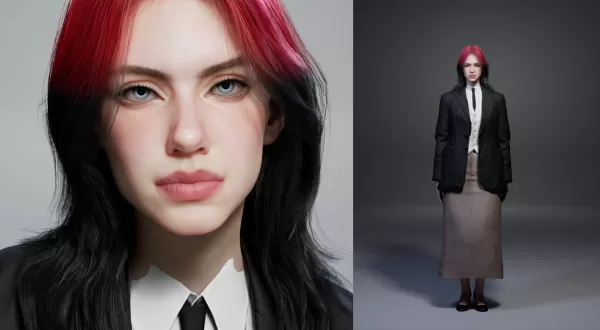Google's newly launched Veo 3 AI tool has taken the tech world by storm, showcasing its ability to generate eerily realistic Fortnite gameplay clips from simple text prompts. This advanced AI video generation tool not only creates visually convincing footage but also includes lifelike audio, setting it apart from other generative AI programs like OpenAI's Sora.
Veo 3 users have been quick to test its capabilities, producing Fortnite gameplay videos complete with commentary from a fake streamer. The quality is so high that these clips could easily be mistaken for authentic content from platforms like YouTube or Twitch. Despite not being explicitly instructed to create Fortnite gameplay, Veo 3 deduces the context from the user's prompts, such as "Streamer getting a victory royale with just his pickaxe," to generate the appropriate content.
The tool's ability to reproduce such convincing representations raises significant ethical and legal questions, particularly regarding copyright infringement. Although Veo 3 is designed not to infringe on copyrighted material, it's evident that the AI has been trained on the vast amount of Fortnite gameplay available online. This development has sparked discussions about the potential misuse of such technology to spread disinformation and undermine trust in legitimate footage.
Beyond gaming, Veo 3 demonstrates its versatility by generating fake news reports, complete with fabricated interviewees and questions, further highlighting its potential to blur the lines between reality and fabrication.
Meanwhile, Microsoft is exploring similar technology with its Muse program, which has been trained on Xbox's Bleeding Edge. The program's capabilities, including generating footage of classic games like Quake 2, have led to debates about the impact of AI on human creativity and employment in the gaming industry.
Fortnite itself has integrated AI, allowing players to interact with a generative AI version of Darth Vader, voiced by the late James Earl Jones. This move, while officially licensed, has stirred controversy and criticism from acting unions concerned about the implications for labor practices.
As Veo 3 and similar technologies continue to evolve, they promise to revolutionize content creation but also pose significant challenges regarding ethics, legality, and the future of creative industries.







![Chubby Story [v1.4.2] (Localizations)](https://images.737c.com/uploads/85/1719638042667f981a5e9f8.jpg)

